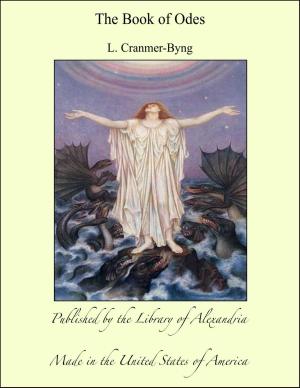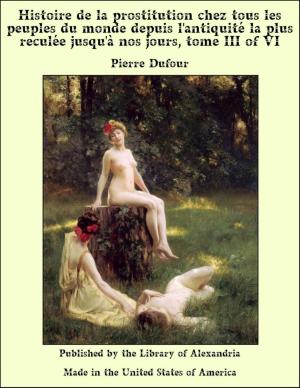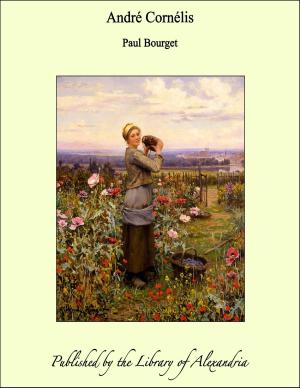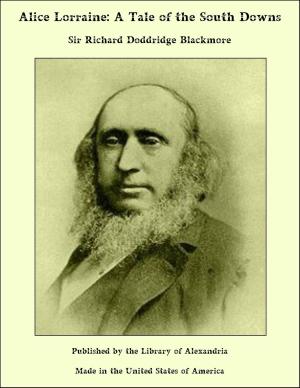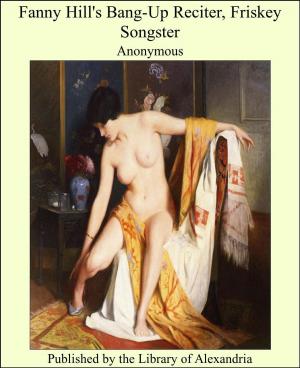| Author: | Fergus Hume | ISBN: | 9781465618023 |
| Publisher: | Library of Alexandria | Publication: | March 8, 2015 |
| Imprint: | Language: | English |
| Author: | Fergus Hume |
| ISBN: | 9781465618023 |
| Publisher: | Library of Alexandria |
| Publication: | March 8, 2015 |
| Imprint: | |
| Language: | English |
The blackbird knew. He had paired for the fifth time in as many years, and esteemed himself wise in the matters, of love. Therefore, from the budding chestnut wherein his nest was built, did he sympathetically watch the bachelor and maid who sat below. They were lovers as he knew very well, for only lovers could have gazed so persistently into one another's eyes, and therein did they behold each other as each wished to be. Which sentence is cryptic to those who are not lovers as these were. They might have looked at the smoothly-flowing river, singing quietly to itself not a stone-cast away, or round a tangled garden, delicately beautiful with the young greenery of May, or up into the azure depths of a sky, flecked with silvery clouds. But they preferred--wisely it may be--to look into each other's eyes, to clasp hands and to remain silent with that eloquent muteness, which is the speech of true love. Oh! the blackbird knew the meaning of these things very thoroughly, and chuckled with such glee that he finally broke into glorious song concerning the new love, the true love, the old love, the bold love, which comes evermore with the blossoms of spring. But these inhabitants of Paradise did not require the bird to reveal the obvious. Their hearts were also singing the song of the early year. "It can't last for ever," murmured the maid dreamily, "it is too beautiful to last, since we are but mortal." "It shall last for ever; it must," corrected the bachelor, wise in that wisdom of the gods, which comes to wooers, "for we love with our souls, dearest, and these cannot die." She knew that he was right, for her heart told her so. Therefore did they again look into one another's eyes and again become silent, while the fluting blackbird explained more than mere human speech could render. And he, perched on a swaying bough, was only too willing to interpret. He knew: he was wise. And listening Nature heard complacently. To such ends had she shaped her children; for such a reason had she provided their Arcadia. As Arcadia, like Marlowe's hell, is not circumscribed, it chanced that this especial one was by Thames-side, and those who dwelt therein were up-to-date in looks and dress and manners. Only their feelings were those of classic times, and as he told her the old, old story, which is ever new, she listened with the instinctive knowledge that the tale was wonderfully familiar. She had read it in his eyes, after the manner of maids, long before he dared to speak. And this river Paradise was not wholly unworthy at so comely an Adam and Eve, although limited in extent and untrimmed in looks. Lord Beaconsfield declared that the most perfect garden is that cultivated to excess by man and then handed over to the caprice of Nature. The owner of this demesne apparently subscribed to this dictum, for the garden, well-filled with expensive flowers and shrubs, had long since relapsed into wildness. On either side of the narrow strip of land, sloping gradually to the stream, extended low walls of mellow red brick overgrown with dark-green ivy. The flowerbeds were luxuriant with docks and nettles and charlock and divers weeds: the pathways were untidy with lush grass, and the tiny lawn at the water's edge was shaggy and untrimmed. A wooden landing-stage floated near shore at the garden's foot, and to this was attached the young man's boat. At the far end of this neglected domain could be seen a thatched cottage with whitewashed walls and oblong lattices quaintly diamond-paned. So rustic and pretty and old-world did it look that it might well have been the fairy-dwelling of a nursery tale. And the lovers themselves were young and handsome enough to deserve the care of the fairies.
The blackbird knew. He had paired for the fifth time in as many years, and esteemed himself wise in the matters, of love. Therefore, from the budding chestnut wherein his nest was built, did he sympathetically watch the bachelor and maid who sat below. They were lovers as he knew very well, for only lovers could have gazed so persistently into one another's eyes, and therein did they behold each other as each wished to be. Which sentence is cryptic to those who are not lovers as these were. They might have looked at the smoothly-flowing river, singing quietly to itself not a stone-cast away, or round a tangled garden, delicately beautiful with the young greenery of May, or up into the azure depths of a sky, flecked with silvery clouds. But they preferred--wisely it may be--to look into each other's eyes, to clasp hands and to remain silent with that eloquent muteness, which is the speech of true love. Oh! the blackbird knew the meaning of these things very thoroughly, and chuckled with such glee that he finally broke into glorious song concerning the new love, the true love, the old love, the bold love, which comes evermore with the blossoms of spring. But these inhabitants of Paradise did not require the bird to reveal the obvious. Their hearts were also singing the song of the early year. "It can't last for ever," murmured the maid dreamily, "it is too beautiful to last, since we are but mortal." "It shall last for ever; it must," corrected the bachelor, wise in that wisdom of the gods, which comes to wooers, "for we love with our souls, dearest, and these cannot die." She knew that he was right, for her heart told her so. Therefore did they again look into one another's eyes and again become silent, while the fluting blackbird explained more than mere human speech could render. And he, perched on a swaying bough, was only too willing to interpret. He knew: he was wise. And listening Nature heard complacently. To such ends had she shaped her children; for such a reason had she provided their Arcadia. As Arcadia, like Marlowe's hell, is not circumscribed, it chanced that this especial one was by Thames-side, and those who dwelt therein were up-to-date in looks and dress and manners. Only their feelings were those of classic times, and as he told her the old, old story, which is ever new, she listened with the instinctive knowledge that the tale was wonderfully familiar. She had read it in his eyes, after the manner of maids, long before he dared to speak. And this river Paradise was not wholly unworthy at so comely an Adam and Eve, although limited in extent and untrimmed in looks. Lord Beaconsfield declared that the most perfect garden is that cultivated to excess by man and then handed over to the caprice of Nature. The owner of this demesne apparently subscribed to this dictum, for the garden, well-filled with expensive flowers and shrubs, had long since relapsed into wildness. On either side of the narrow strip of land, sloping gradually to the stream, extended low walls of mellow red brick overgrown with dark-green ivy. The flowerbeds were luxuriant with docks and nettles and charlock and divers weeds: the pathways were untidy with lush grass, and the tiny lawn at the water's edge was shaggy and untrimmed. A wooden landing-stage floated near shore at the garden's foot, and to this was attached the young man's boat. At the far end of this neglected domain could be seen a thatched cottage with whitewashed walls and oblong lattices quaintly diamond-paned. So rustic and pretty and old-world did it look that it might well have been the fairy-dwelling of a nursery tale. And the lovers themselves were young and handsome enough to deserve the care of the fairies.




